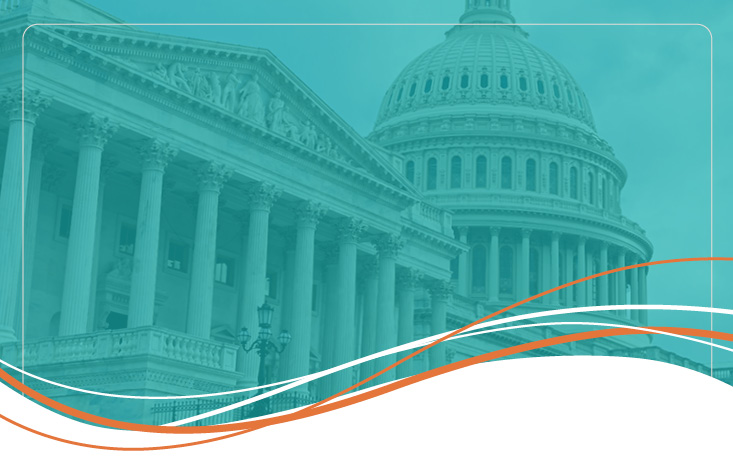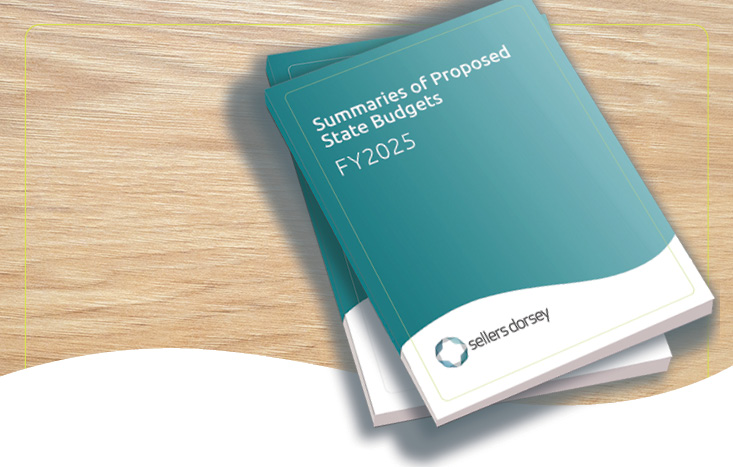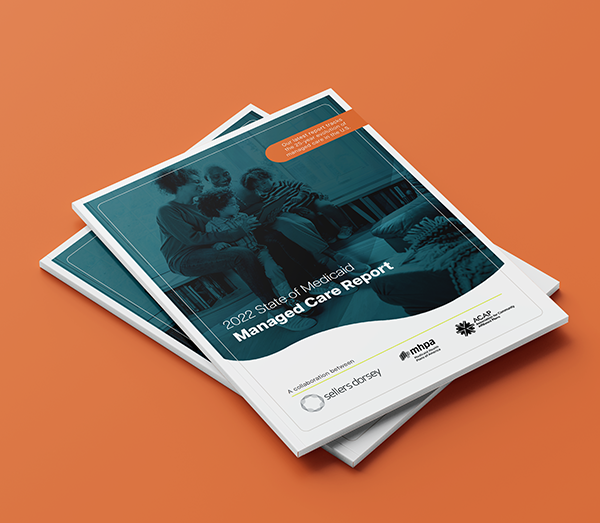CMS Medicaid Access RFI: March 1, 2022 Stakeholder Call

On February 17, CMS issued a Request for Information (RFI) to seek feedback on ways to improve access and equity and inform their strategy for Medicaid and CHIP programs. The RFI seeks input from a diverse set of stakeholders and interested parties may provide responses on Medicaid.gov through April 18. The RFI is focused on three key areas: coverage and access; equity; and innovation and whole-person care. Specifically, CMS is looking for input on five main objectives:
- The best strategies to reach people who are eligible for Medicaid and CHIP and explain the benefit from such coverage.
- The best strategies to maintain Medicaid and CHIP beneficiaries’ health care coverage and ensure that beneficiaries are not inappropriately disenrolled due to transitions. This is particularly important during and immediately after the public health emergency (PHE) ends.
- The minimum standards that should be set in both the fee-for-service and managed care delivery systems and across various types of services and providers to ensure Medicaid and CHIP beneficiaries have access to timely, high-quality, and appropriate care that is aligned with the beneficiary’s needs as a whole person.
- The types of data, both current and new, that CMS should utilize to measure, monitor, and support improvement efforts related to equitable access to services (i.e., potential access; realized access; and beneficiary experience with care across states, delivery systems, and populations) in the Medicaid and CHIP programs.
- The best strategies to connect minimum provider access standards and payment rates in the Medicaid and CHIP programs to enlist and retain enough providers so that covered services are accessible to Medicaid and CHIP beneficiaries to the same extent that comparable services are accessible to the general population within the same geographic area.
On March 1, CMS held a Medicaid Access RFI Stakeholder Call to further elaborate on what the agency is looking for in the RFI responses and answer any questions that stakeholders may have. Brian Leshak, Senior Advisor for Communications, Office of the Center Director, Centers for Medicaid and CHIP Services (CMCS) provided opening remarks before introducing Dan Tsai, Deputy Administrator and Director of the CMCS.
Administrator Tsai discussed why CMCS is excited about the RFI, and why CMCS wants to hear from stakeholders. The Administrator reiterated the 3 key priority areas of focus across all of CMCS’s work: (1) coverage and access; (2) health equity; (3) innovation and whole-person care.
When discussing these priorities across multiple areas within CMCS, everything comes back to access. This RFI is a further commitment of CMCS’s desire to partner with stakeholders, including beneficiaries, providers, community organizations, advocates, etc. on how define access and set a common floor for standards to assess access and coverage. These responses will help to shape the focus of future rulemaking, administrative oversight and data collection and measurement.
Administrator Tsai also noted that access includes both the fee-for-service (FFS) and managed care delivery systems as well physical health, behavioral health, long term services and supports/home and community-based services and providers. These include unique issues associated with workforce needs/qualifications, payment, and other factors and that CMCS is excited to hear what stakeholders have to say in response to the questions posed in the five identified objective areas within the RFI.
Director Tsai also reminded participants of the more recent Access Rule that is listed publicly and suggested that the RFI responses could help to inform this rulemaking. However, the RFI responses will help to shape CMS policy and guidance beyond rulemaking to include support, advancement, and definition in day-to-day work with states, managed care plans, community providers, etc. CMCS is looking for concrete and action-oriented recommendations from a range of different perspectives. There may be opportunities to implement recommendations immediately and some may be implemented over time.
Anne Marie Costello, Deputy Director, CMCS spoke next and provided an overview of why stakeholder feedback is important and how stakeholders may access the online RFI form.
Ms. Costello reiterated that CMCS hopes to receive feedback that will help them understand beneficiaries access to health care services. CMCS will use information to inform future policies, regulatory work, and administrative activities to ensure Medicaid and CHIP beneficiaries’ access to coverage and quality health care services in both the FFS and managed care delivery systems. CMCS is looking to gather information that includes information on timely access to all covered services and stressed the importance of both behavioral health and long-term services and supports, as particular areas of interest. Ms. Costello noted that CMCS understands that some enrollees still experience delays in access despite current policy and regulatory requirements. CMCS does want to better understand beneficiary concerns from community members with lived experiences.
Ms. Costello indicated that anyone interested in providing input can access the RFI online to provide their input at the following location: Objective 1 of 5 (qualtrics.com). Ms. Costello mentioned the five key objectives and the specific questions that are being solicited under each objective. CMCS does not expect respondents to reply to all questions, rather respondents should reply to those questions and area of focus that are most relevant for them. She reiterated that the RFI is open for 60 days and that responses will be accepted through April 18.
Hailey Gutzmer, Partner Relations Group, Office of Communications facilitated the question-and-answer session of the meeting.
General Questions:
Q – Will the feedback be available to the public?
A – CMCS could not confirm at this time whether feedback will be distributed to the public but will take under advisement and let stakeholders know.
Q – What is the difference between this RFI and the RFI that CMCS issued in 2015?
A – CMCS indicated that sever years have elapsed since the time that information was collected and that there have been significant events and changes over that time period that warranted new opportunities for feedback. The previous RFI helped shape some policies that CMCS issued at that time. The current thinking is much broader and encompasses not only delivery systems, but also home and community-based services, and behavioral health parity. Director Tsai indicated that the RFI will help to inform the current standalone NPRM Access Rule, future MCO regulations, HCBS regulations.
Q – Must respondents provide feedback on all topics, or just those that are relevant to them?
A – No, respondents may provide responses to only those objectives or questions most relevant to the work respondent does or has thoughts to share with CMCS.
Q – Are respondents able to collaborate with colleagues on completing the form or must the responses be completed individually?
A – Respondents may collaborate, but CMCS prefers that respondents are clearly identified, i.e., could start or close response with information about who the responses are from.
Q – Does CMCS anticipate a timeline from when the RFI closes that feedback will be included in future action?
A – CMCS indicated that future action will not just occur through formal rulemaking. As such, some may be immediately implemented through administrative oversight and policy clarifications; while others may require more time to complete through future rulemaking.
Q – How will CMCS go about exporting and evaluating the responses once the RFI is closed?
A – CMCS will analyze internally and noted that they have already started to see responses coming in. They will take the time to determine what responses and feedback require formal rulemaking, what can be implemented through data reporting and measurement and what are the best mechanisms to address both managed care and FFS delivery system requirements, which pertain to adults or children, and if there are specific services that require more immediate attention like LTSS/HCBS or behavioral health or policies impact the end of the public health emergency. This information will be used across all the various areas within CMCS.
Q – Is CMCS seeking responses from organizations only or from participant’s clients as well?
A – CMCS advised that the RFI is not the only format through which they are seeking input. They are meeting directly with beneficiaries and their advocate representatives as an online form may not be the friendliest for beneficiary input therefore beneficiaries are being tapped in other ways to get their input. However, any organization can support their clients to submit information in response.
Logistical Questions:
Q – Is there a character limit for individual question responses?
A – Capacity is 20,000 characters per question (20 pages per question).
Q – Is there a way to look at the questions before formally responding to the RFI?
A – Yes, there is a link that will take a respondent out of the RFI to a document that lists out the questions. access-requestforinformation-2022-questions (medicaid.gov)
Q – Will there be an option to attach documents?
A – No, CMCS is directing respondents to use the fillable form to the maximum extent possible which will enable CMCS to streamline their review. If documents or research is available through Google Docs or website links, those may be embedded in response within the online form or at the end of the RFI where additional comments may be provided.
Q – Is there an option to submit a packet of responses via email or just through form?
A – All response should be submitted through online portal.
Q – Can respondents provide a link to graphics or infographics?
A – Yes, the links could be embedded within the response form for a specific objective/question.
Q – Does CMCS include transportation as part of the service to assess access?
A – YES.
Q – Can a respondent begin the RFI and then come back and complete responses at a separate time?
A – Yes.
Mr. Leshak thanked participants for attending the forum and appreciates the interest from all participants and looks forward to valued feedback related to this topic. Any questions on accessing the RFI can be submitted to Partner Relations Group.
Should you have any questions, please contact us at info@sellersdorsey.com.




